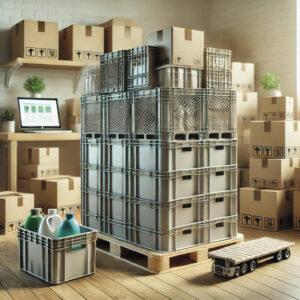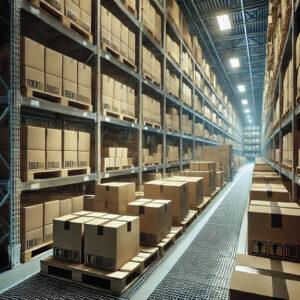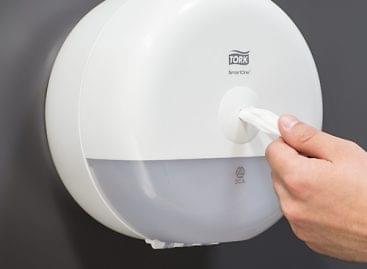Smaller footprint, bigger impact
This article is available for reading in Trade magazin 2024/10
Natural solutions
According to Anna Keinänen, market intelligence manager of Metsä Board, e-commerce had already been growing fast before Covid and it peaked during the pandemic. However, growth slowed down in 2022 when people returned to traditional shops. She also calls attention to the fact that online shopping has a big influence on what is happening in the packaging industry. E-commerce packaging has to meet a number of requirements.

Anna Keinänen
market intelligence manager
Metsä Board
“At the beginning of the chain, the designer needs to come up with concepts that influence the product’s carbon footprint and the amount of waste it generates. Choosing the right material is key to this. In addition to the packaging material, the internal fillers, the weight of the packaging and the different adhesive solutions also affect the overall emissions. Metsä Board has developed different natural fibre based methods for space fillers that can replace plastic, are easier to recycle and have a smaller carbon footprint”,
says Anna Keinänen.

Packaging industry mainly focuses on cost efficiency and lower environmental impact
Comprehensive development work
Consumers demand more and more and companies put bigger emphasis on how to package different products in the most efficient fashion.

Szőnyi Zoltán
értékesítési igazgató
Dunapack
“There is also growing demand for high quality printing. Companies want printing to reflect or support their brand, so it is important for us to meet these specific needs”,
says Zoltán Szőnyi, sales director of Dunapack Kft.
Thanks to development work at Dunapack Kft., soon the D-wave cardboard will form part of the product selection. This wave type combines the advantages of microwave and B-wave. The company’s business strategy is to invest most of its profits in development. For instance they have replaced conventional forklift trucks with electric ones, 50% of electricity comes from green energy and they have started investing in solar panels in all three of our factories. Currently the biggest challenge in e-commerce is over-packaging. This problem is rooted in the desire to ensure that the product reaches its destination intact.

Over-packaging is the biggest challenge in e-commerce

Bart Dobbelaere
managing director
VPK
“The most important task ahead of us has been finding the right technology, as many boxes require the optimal combination of tear tape and adhesive strip to be incorporated into the box design”,
we learn from Bart Dobbelaere, managing director of VPK.
Changing needs
VPK Group has created a division specifically dedicated to the e-commerce market. They motivate customers with numerous innovations. Products are BRCGS certified, guaranteeing safe food contact. The special design of the boxes establishes a strong link between the customer and the product. In recent years the biggest challenge has been the periodic peaks and surges resulting from the volatility in demand. Black Friday, Glamour Days and the Christmas season all lead to sudden surges in e-commerce sales.

E-commerce parcels go through a longer supply chain and more logistical touch points than traditional in-store parcels

Sándor Bátki
deputy managing director
Trans-Sped
“Furthermore, EPR – extended producer responsibility – is a significant administrative burden and extra cost for companies. The range of products sold in the online space is becoming increasingly diverse, requiring new delivery and packaging strategies”,
says Sándor Bátki, deputy managing director of Trans-Sped.
It was Trans-Sped that introduced the ZERO service – which provides multiuse packaging material – to the e-commerce market. One of the key benefits of ZERO is that it makes an environmentally friendly solution possible, with no additional waste for consumers. It also offers faster and much more efficient packaging for retail partners. //
Related news
Tork at SIRHA Budapest: hygiene, efficiency and sustainability for the HoReCa sector
🎧 Hallgasd a cikket: Lejátszás Szünet Folytatás Leállítás Nyelv: Auto…
Read more >Related news
No matter how much you save, food and gadgets always take the money
🎧 Hallgasd a cikket: Lejátszás Szünet Folytatás Leállítás Nyelv: Auto…
Read more >







